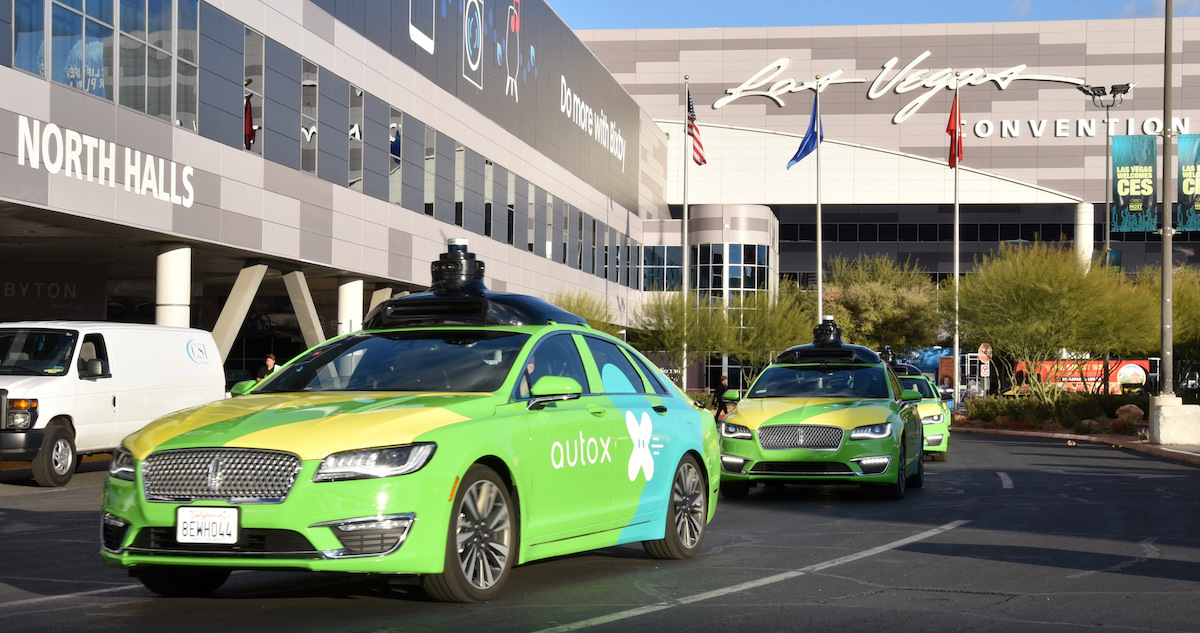Seagate is teaming with autonomous driving technology company AutoX to build a private cloud for quickly processing massive amounts of data from road tests of its driverless cars.
Driverless cars use an array of advanced sensors and onboard artificial intelligence systems to make quick decisions in real time. The ability to analyze and process terabytes of data collected each day from sensors and light-detection and ranging (LIDAR) devices is key in training the AI Driver to learn and adapt to a wide range of road conditions to
 AutoX is working with Seagate to create a private cloud data-management architecture, using Seagate’s Exos® E 5U84 system. By doing so, the company hopes to improve the speed and efficiency of its data processing.
AutoX is working with Seagate to create a private cloud data-management architecture, using Seagate’s Exos® E 5U84 system. By doing so, the company hopes to improve the speed and efficiency of its data processing.
In July, AutoX received a permit from the California Department of Motor Vehicles to begin driverless testing on public roads within a designated area of San Jose. The company currently operates robotaxi fleets in Shenzhen and Shanghai. In April, it opened an 80,000-square-foot Robotaxi Operations Center in Shanghai, which serves as the largest data hub for self-driving cars in Asia.
Petabytes per day: data is the new fuel
For self-driving cars, data is just as important as gasoline and electricity—and is sometimes referred to as the “new fuel.” Each robotaxi can generate as much as 1TB of data per hour. AutoX’s 100 robotaxi fleet generates petabytes of data every day. Road testing data must be analyzed and processed as fast as possible upon its collection.

Transmitting and storing all that data to public clouds can create latency issues—resulting in delays in processing and analyzing information—and it can increase costs. As Seagate’s “Rethink Data” report shows, enterprises are increasingly choosing to house some of their data in an on-prem private cloud.
“Having a robust data architecture is essential for AutoX to process massive amounts of data,” said Dr. Jan Wei Pan, the VP of Technology and Partnerships at AutoX. “Not only must we consider factors such as cost, performance and capacity, but we also need the key data processed and stored at the fastest speeds possible.”
Edge-based private cloud: faster processing, lower TCO
In response to AutoX’s data-storage requirements, Seagate designed and built an edge-based private cloud data center to support the AutoX data infrastructure; many tasks that were previously performed in a public cloud environment are now processed at the edge. Data from field operations and simulation tests, for example, can be uploaded quickly to a private cloud data center, enabling frequent access to large data sets.
This meets AutoX’s need for faster data processing, while also reducing its total cost of ownership (TCO). The data processed at the edge will eventually be stored on a public cloud for archiving and backup.
In building a private cloud data center at the edge, Seagate started with understanding the needs of its customer, and then tailored a solution, which included the Exos E 5U84 system, server, and Ceph distributed storage system.
The Seagate Exos E 5U84 system, which can store up to 1.1 petabytes of data, provides powerful integration capabilities and effectively improves the utilization of the private cloud data center. In addition, thanks to its industry-leading density and performance, the system minimizes TCO. Also, its scalable architecture—it can seamlessly expand to 336 drives as business grows—can help AutoX handle the exponential growth of autonomous driving data now and in the future.
The solution is highly replicable, which supports AutoX’s quick expansion of its robotaxi fleets in Shanghai, Shenzhen, Wuhan, and many more cities.
“AutoX is a great example of an IT 4.0 industry leader that’s pushing us to deliver more powerful data storage solutions where analysis and answers can be provided faster in order to make decisions and solve critical issues,” said Sandy Sun, Seagate’s VP and GM for China. “We are proud to partner with AutoX as it continues to innovate and bring the future of autonomous vehicles closer to reality.”
